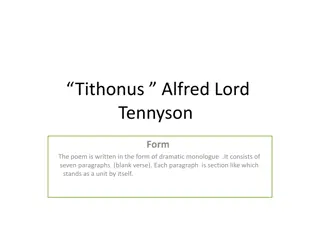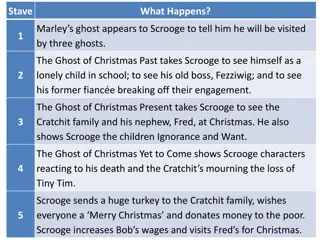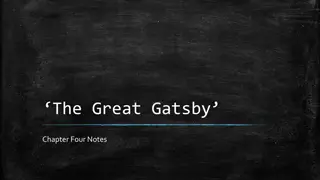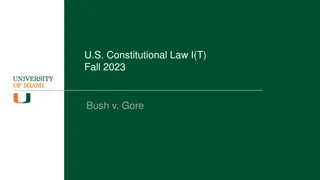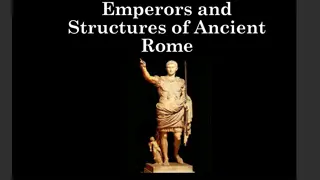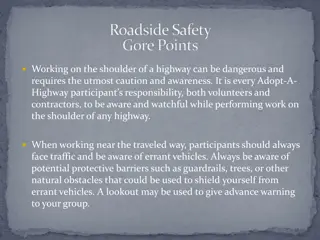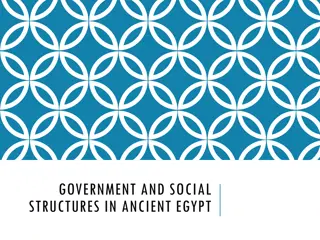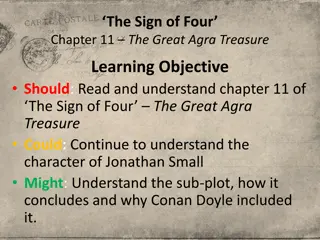Mr. Gore - A Cruel Overseer in Chapter Four
In Chapter Four, Mr. Gore is depicted as a proud, ambitious, and persevering overseer who exhibits extreme cruelty and a lack of empathy towards the slaves. The passage highlights his authoritarian rule, unjust accusations, and relentless punishment, instilling fear and obedience among the enslaved individuals. Through parallel structure and chiasmus, Frederick Douglass portrays Mr. Gore's ruthless character and the oppressive environment of the plantation.
Download Presentation

Please find below an Image/Link to download the presentation.
The content on the website is provided AS IS for your information and personal use only. It may not be sold, licensed, or shared on other websites without obtaining consent from the author.If you encounter any issues during the download, it is possible that the publisher has removed the file from their server.
You are allowed to download the files provided on this website for personal or commercial use, subject to the condition that they are used lawfully. All files are the property of their respective owners.
The content on the website is provided AS IS for your information and personal use only. It may not be sold, licensed, or shared on other websites without obtaining consent from the author.
E N D
Presentation Transcript
Group Members Anne Saba Yuzhu Shi Daniel Rivkin Mark Kreynovich
Passage Chapter: Four Page: 26-28 Mr. Gore was proud, ambitious, and persevering. He was artful, cruel, and obdurate. 1 He was just the man for such a place, and it was just the place for such a man. 2 It afforded scope for the full exercise of all his powers, and he seemed to be perfectly at home in it. He was one of those who could torture 3 the slightest look, word, or gesture, on the part of the slave, into impudence, and would treat it accordingly. There must be no answering back to him; no explanation was allowed a slave, showing himself to have been wrongfully accused. Mr. Gore acted fully up to the maxim laid down by slaveholders, "It is better that a dozen slaves should suffer under the lash, than that the overseer should be convicted, in the presence of the slaves, of having been at fault." No matter how innocent a slave might be it availed him nothing, when accused by Mr. Gore of any misdemeanor4. To be accused was to be convicted, and to be convicted was to be punished 5; the one always following the other with immutable certainty. To escape punishment was to escape accusation; and few slaves had the fortune to do either, under the overseership of Mr. Gore. He was just proud enough to demand the most debasing homage of the slave, and quite servile enough to crouch, himself, at the feet of the master. He was ambitious enough to be contented with nothing short of the highest rank of overseers, and persevering enough to reach the height of his ambition. He was cruel enough to inflict the severest punishment, artful enough to descend to the lowest trickery, and obdurate enough to be insensible to the voice of a reproving conscience. 6 He was, of all the overseers, the most dreaded by the slaves. His presence was painful; his eye flashed confusion; and seldom was his sharp, shrill voice heard 7 , without producing horror and trembling in their ranks.
Annotation 1 Mr. Gore was proud, ambitious, and persevering. He was artful, cruel, and obdurate. Douglass starts off the passage with parallel structure to portray Gore s cruelty. The similarity of the two back-to- back sentences gives off the effect that the list is unending and shows that the two sentences are equal importance. Return to passage Return to passage
Annotation 2 He was just the man for such a place, and it was just the place for such a man. Douglass uses chiasmus to illustrate how Mr. Gore mirrors the plantation with his cruelty. The plantation fosters Gore s hardline personality and allows him to express it while simultaneously contributing to the brutal aspects of slavery. Return to passage Return to passage
Annotation 3 He was one of those who could torture the slightest look, word, or gesture, on the part of the slave, into impudence, and would treat it accordingly. The use of the word torture, which has a connotation of malice, contributes to the overall poor condition of the slaves. In the sentence, torture means to stretch, but Douglass chooses torture because it has a bigger effect on the reader and furthers the point that Mr. Gore is villainous. Return to passage Return to passage
Annotation 4 No matter how innocent a slave might be it availed him nothing, when accused by Mr. Gore of any misdemeanor. The use of parenthesis (the hyphen) replicates the effect of Mr. Gore on the slaves lives. It messes with the purity of the sentence just like Gore creates crime from the innocence of the slave. This contributes to the portrayal of the injustices done to the slaves. Return to passage Return to passage
Annotation 5 To be accused was to be convicted, and to be convicted was to be punished The use of anadiplosis accentuates the inevitable connection between being accused and being punished. The repetition of convicted provides a transition and link between the two, demonstrating the unfair treatment of the slaves. Return to passage Return to passage
Annotation 6 He was just proud enough to demand the most debasing homage of the slave, and quite servile enough to crouch, himself, at the feet of the master. He was ambitious enough to be contented with nothing short of the highest rank of overseers, and persevering enough to reach the height of his ambition. He was cruel enough to inflict the severest punishment, artful enough to descend to the lowest trickery, and obdurate enough to be insensible to the voice of a reproving conscience. Douglass employs parallelism in this passage to better characterize Mr. Gore by depicting him as a bold, and neglecting man, while ironically submissive to his own superiors. Beginning each sentence with the same phrasing engrains an understanding of the qualities expressed into the reader. This is reference to the beginning of the passage as it mentions the same qualities, and the parallel structure emphasizes how all of these qualities are part of the overall personality of Gore. Return to passage Return to passage
Annotation 7 His presence was painful; his eye flashed confusion; and seldom was his sharp, shrill voice heard, without producing horror and trembling in their ranks. The alliteration of the s sound produces a sinister effect and a harsh sound, which represents Gore s personality and the malevolence he shows towards the slaves. Return to passage Return to passage
Parallelism Sentences and/or phrases are expressed with similar grammatical structure Return to passage Return to passage
Chiasmus Two corresponding pairs arranged in inverted order (a-b-b-a) rather than in parallels Return to passage Return to passage
Anadiplosis Repetition of the last word of one line to begin the next Return to passage Return to passage
Parenthesis Word or phrase inserted as in aside in the middle of a sentence Return to passage Return to passage
Connotation Meaning associated with a word (not the literal meaning) Return to passage Return to passage
Alliteration Repetition of sounds beginning words
Vocabulary Impudence- disobedience or disrespect towards authority Return to passage Return to passage
Vocabulary Debasing- humiliating Homage- respect, reverence Return to passage Return to passage











